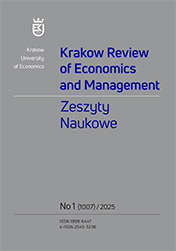Trust in Government as a Factor
Influencing Acceptance of Behavioural
Public Policy Instruments: Example
of Poland and Selected Countries
Trust in Government as a Factor
Influencing Acceptance of Behavioural
Public Policy Instruments: Example
of Poland and Selected Countries
Author(s): Danuta MiłaszewiczSubject(s): Civil Society, Politics and communication, Politics and society
Published by: Wydawnictwo Uniwersytetu Ekonomicznego w Krakowie
Keywords: behavioural insights; behavioural public policy instruments; trust in government; comparative studies of countries;
Summary/Abstract: Objective: To assess public support of selected nations with regard to various types of nudgesintroduced by behavioural public policy and the level of trust these nations have in theirgovernments as the creators of these policies.Research Design & Methods: The article is based on literature studies, descriptive andcomparative analysis along with statistical analysis of quantitative data derived from nudgeacceptance surveys conducted (representative research samples, with the same methodology andquestionnaire) in Poland and other countries analysed, as well as from the World Values Surveystudies carried out in these countries.Findings: In the countries analysed, citizens approve of most of the nudges presented to them.There is much greater variation in these countries in terms of trust in the government. The analysisof the relationships between both variables indicates that there is no simple linear relationship,i.e. there is neither an unambiguously positive nor negative relationship between the analysed variables. It is rather a U-shaped relationship. The division of the surveyed countries into fourgroups is also visible.Implications / Recommendations: The lack of trust in the government proven in the analysismay, in certain countries, be a factor that inhibits the acceptance of the tools introduced by thegovernment and prevents or delays desired behavioural changes. In such a situation, an appropriatesolution might be to create a behavioural team that could operate independently of the governmentand bring together experts who, with greater knowledge, would make better decisions regardingbehavioural changes in societies. Governments can also use behavioural science to build trustamong the public.Contribution: Enhancing knowledge of the potential use of behavioural public policyinstruments and attempting to assess and benchmark trust in government and acceptance of theseinstruments in selected countries. The conclusions from the conducted research can be used byboth practitioners and theoreticians in the field of public policy.
Journal: Zeszyty Naukowe Uniwersytetu Ekonomicznego w Krakowie
- Issue Year: 1007/2025
- Issue No: 1
- Page Range: 29-48
- Page Count: 20
- Language: English

